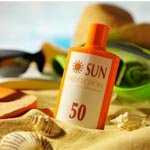Sunscreen: What To Choose!

Excessive exposure of skin to sunlight can lead to various problems such as ageing, burning and even skin cancer. Skin cancer is an alarming issue in India and needs to be taken care of. Some areas where one can witness worst signs of pre-ageing and pre-cancers are fore-head, neck and the back of the hand. It is always advisable to use sunscreen, apply it every day to keep oneself away from the drastic effects sunlight can have on one’s skin.

But, almost all you out there are often confused about what to choose, how to choose and why to choose a sunscreen with good SPF. For resolving the same issue of choosing the correct SPF, and to know true meaning of SPF, One World News asked Dr. Sirisha Singh, a Dermatologist, to enlighten us and our readers with correct information.
“SPF stands for sun protection factor. It is the degree of protection from UV B rays. The higher the SPF, the more is the protection from UV B rays. It does not mean that one is protected for a longer duration. Photo-damage (damage to the skin due to UV exposure) is due to both UV-A and UV-B rays. Using a sunscreen based purely on SPF may result in UV-A exposure and UV damage to the skin. To quantify the degree of protection from UV A rays, the protection grade rating system which rates the sunscreens as PA+ to PA++++ is used. Other rating systems such as SPF equivalence and PPD (persistent pigment darkening) may also be used.
The rationale behind using a sunscreen is not to prevent a tan. The medical reason for using a sunscreen is to lower the risks of certain skin cancers. A cosmetic indication is to slow down the signs of photo-ageing (ageing of the skin due to UV exposure). The signs of photo-ageing include pigmentation, broken capillaries, fine lines and wrinkles on the face.

Sunscreens work most efficiently when a broad spectrum sunscreen is used and it is applied at regular intervals. There are several formulations of sunscreens available like gels, lotions, creams, ointments, sprays, compact powders etc. One can choose their sunscreen based upon their skin type. In the Indian context a sunscreen of SPF 30 is adequate for daily life. While on holidays, it is worthwhile to use a sunscreen with SPF 50.
There have been concerns raised about the safety of sunscreens. Most sunscreens contain avobenzone which has been implicated in certain cancers. However, the amount of avobenzone is very low and no significant amounts penetrate into the blood. The risks of not using a sunscreen far outweigh the theoretical risk of developing cancers due to avobenzone. Also, there have been concerns that sun exposure is required for production of vitamin D in the skin and sunscreens can block this production. However, 15 minutes of exposure 2 times a week have been shown to produce adequate amounts of vitamin D.”

So all those people, who avoided excessive exposure of skin to sunlight just because they would turn dark, and avoided going out on sunny days, were somewhere being intelligent and right. We all know excess of everything is bad, so, now onwards do what is the right thing (even if that means to stay home) and keep your skin and your body healthy.
Image Courtesy : http://jupiterimages.com







